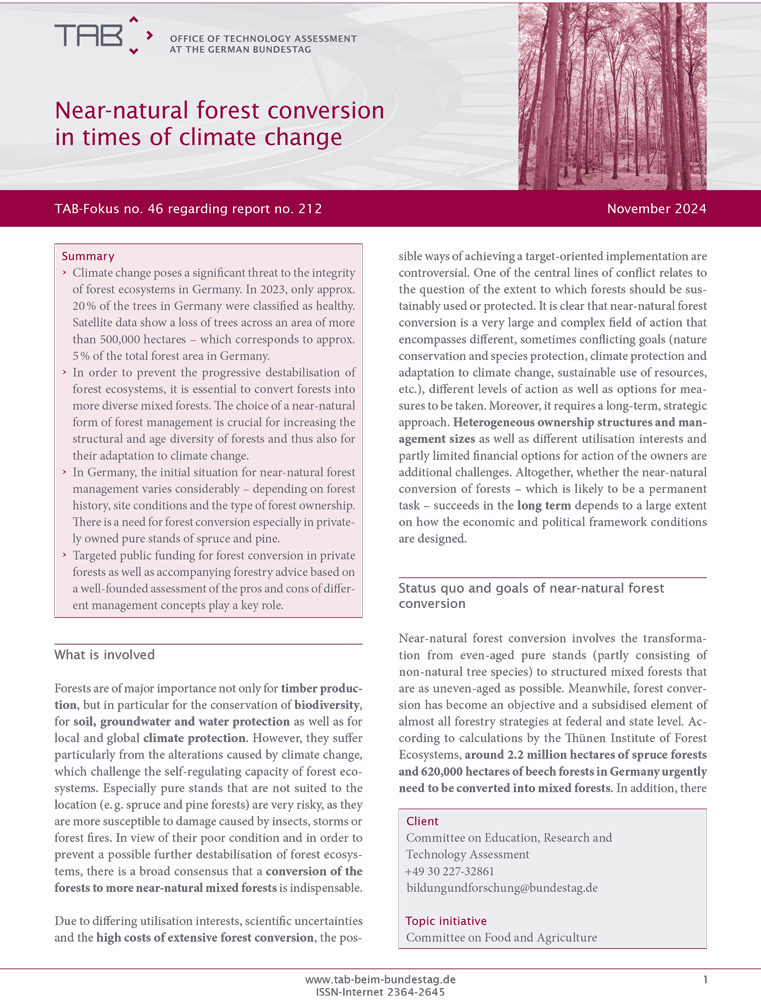Forest conversion in times of climate change: strategies for more resilient and productive forests
Climate change is posing unprecedented challenges to Germany's forests in the form of more frequent heat waves, storms and pest outbreaks. Non-native and monocultural forest stands are particularly at risk.
At the same time, forests are essential for climate protection, biodiversity conservation and a sustainable supply of raw materials. The latest report from the Office of Technology Assessment at the German Bundestag (TAB) focuses on the key aspects of near-natural forest conversion.
The report shows how targeted measures can make forests more resilient and ecologically stable. It focuses on the conversion to semi-natural mixed forests, the use of modern technologies such as satellite and drone monitoring, and the economic and legal framework. Significant efforts, including financial, will be needed to meet the estimated conversion needs of around 3.3 million hectares by 2050. Without government support, many private forest owners would not be able to manage forest conversion. In addition to clear policy objectives, the key to success is identified as targeted funding for forest conversion, complemented by forestry advice and investment in technological innovation.
The broad range of issues and options presented in the full report provides a sound basis for policy making and practical implementation. The key findings are presented in the four-page TAB-Fokus no. 46 and its web version on the project website.
25.11.2024
Further information
- TAB-Fokus no. 46
Near-natural forest conversion in times of climate change (PDF)
doi:10.5445/IR/1000176610 - TAB-Arbeitsbericht Nr. 212 (full report only in German)
Naturgemäßer Waldumbau in Zeiten des Klimawandels (PDF)
doi:10.5445/IR/1000176608 - Projekt page (mit TAB-Fokus Nr. 47 - Webversion)

